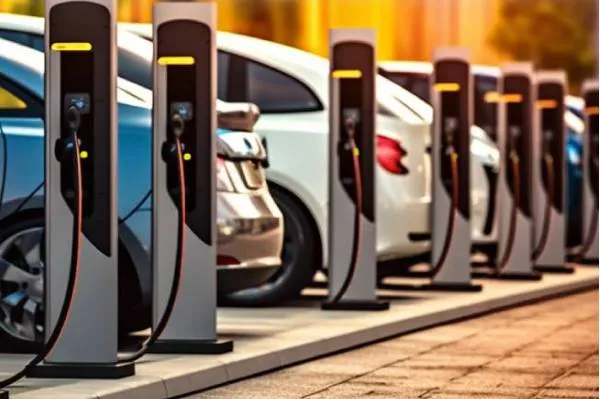EU leaders give green light to additional tariffs on electric vehicles from China
Brussels, Oct. 5 (Hibya) - EU leaders have given the green light to impose tariffs on electric vehicles from China, despite opposition from five countries, including Germany, where carmakers have condemned the move as a potential "death blow" to the automotive sector.
The European Commission, which provisionally approved the move in June after an investigation found Beijing's state aid to carmakers was unfair, is now free to impose higher tariffs for five years from the end of this month.
The tariffs, which come on top of existing 10 percent tariffs of up to 35.3 percent, were backed by 10 member states including France, Italy and Poland.
Only five countries voted against it, including Germany and Hungary, which have significant investment promises from China, while 12 countries including Spain and Sweden abstained.
BMW and Volkswagen criticized the EU decision. BMW said it was a “deadly signal” for the European car industry, while VW said it was the “wrong approach”.
Germany’s automotive industry association VDA also chimed in, saying the country’s vote against the tariffs was the “right signal” for the industry. The carmakers’ opposition has drawn some criticism that they are not falling behind EU policy but instead are siding with China, which has condemned the vote as “protectionist”.
“We strongly urge the EU to delay the implementation of these tariffs and prioritise resolving disputes and trade tensions through consultations and dialogue,” the Chinese Chamber of Commerce told the EU.
While the tariffs do not support most states, the opposition was not enough to block them – which would require objections from at least 15 countries, representing 65 percent of the bloc’s population.
That leaves the choice to proceed in the hands of the commission, which is “expected to decide on its proposal”, said one EU diplomat. The additional duties are also being imposed at various rates on vehicles made in China by foreign groups such as Tesla, which faces a 7.8 percent tariff.
Brussels says the measures aim to protect European carmakers in a critical sector that employs around 14 million people across the EU but does not benefit from the same large state subsidies as China.
In recent months, Canada and the US have imposed much higher tariffs of up to 100 percent on electric car imports from China.
The EU tariffs have pitted France and Germany against each other, with Paris arguing they are necessary to ensure EU carmakers can compete on equal terms with their Chinese counterparts.
The duties, expected to come into effect in early November and last for at least five years, range from a 7.8 percent surcharge on Tesla cars made in China to a 35.3 percent surcharge on cars made by SAIC, including British brand MG.
Usa News Agency
















